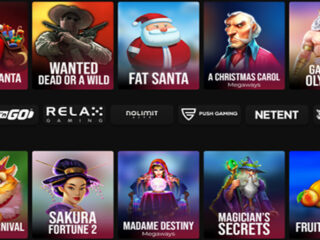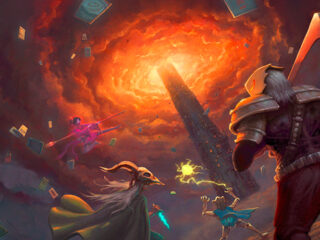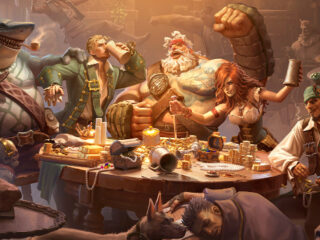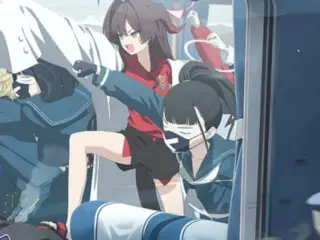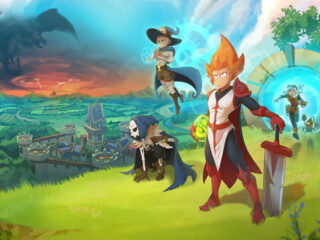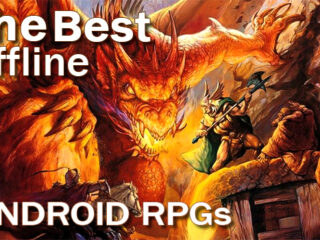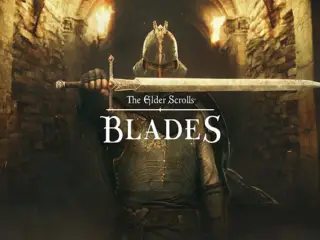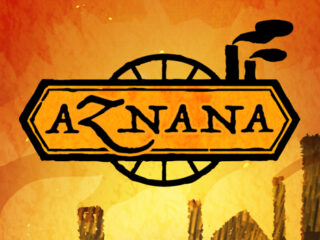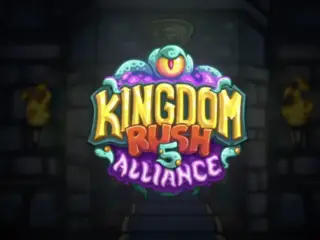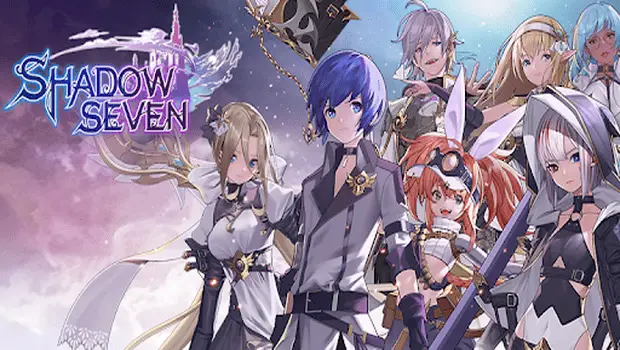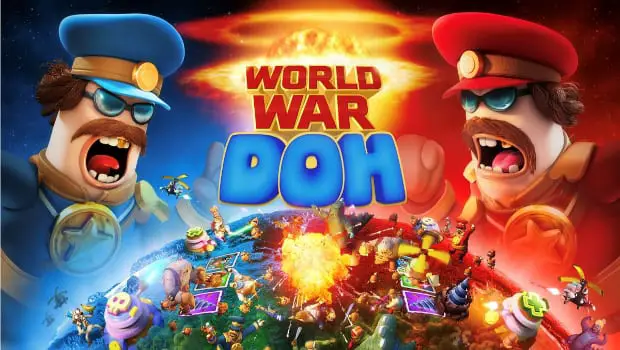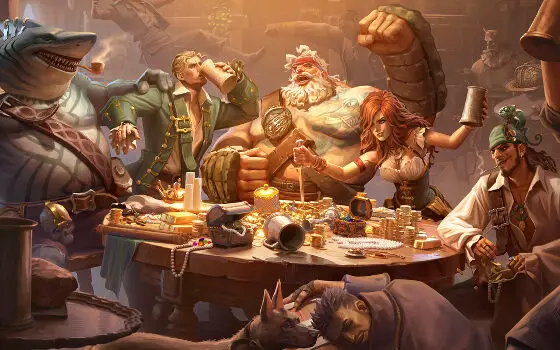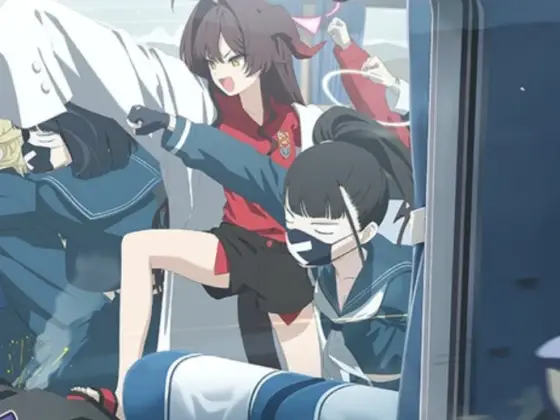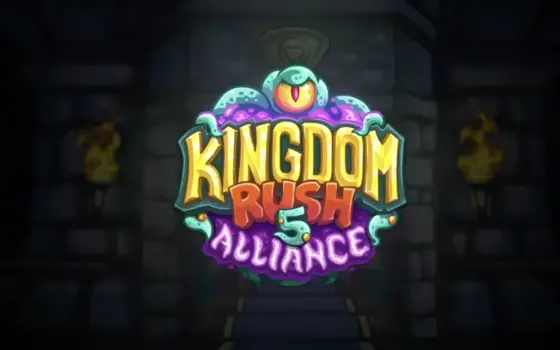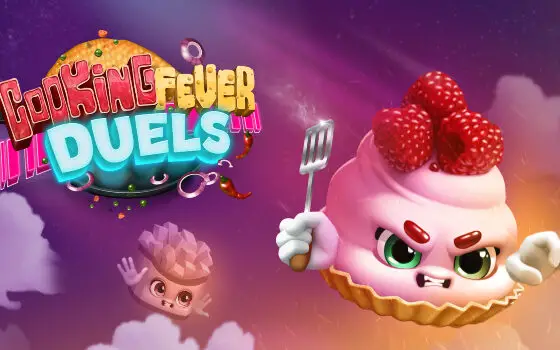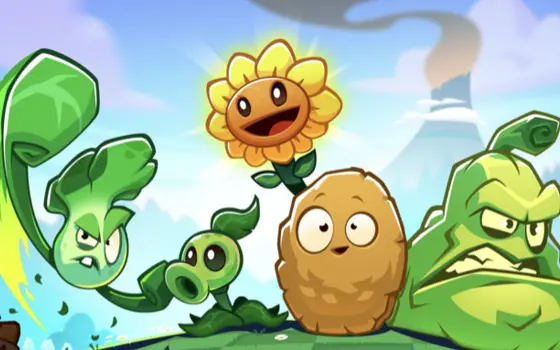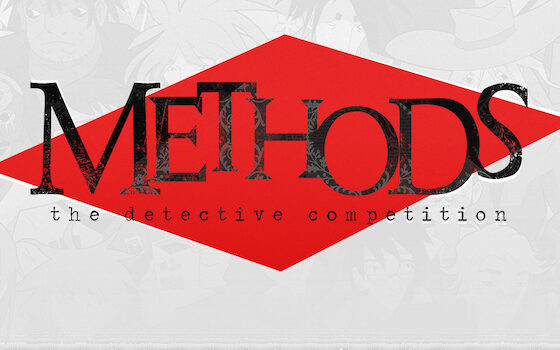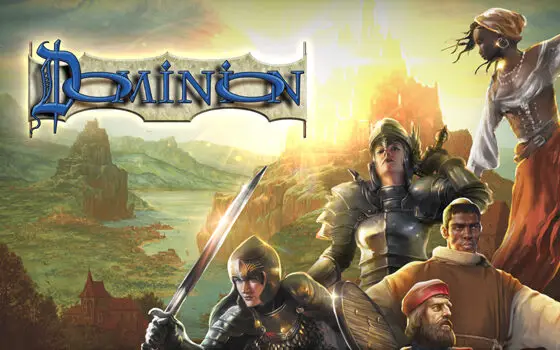A Unique Take on a Flawed Formula
Shadow Seven combines gacha and card game elements in a title that plays like a cross between chess and Fire Emblem. On the surface, this fusion creates an engaging combat system. But like many games in the gacha genre, its longevity is limited by the wall you hit a few hours in, where obtaining useful cards becomes equally more important and difficult.
Though at its best, this game offers a challenging strategy experience, Shadow Seven is focused on positioning as much as it’s focused on deck building. While you’re balancing information on your opponent’s abilities, you’re also moving yourself around on a grid, trying to squeeze your opponent into a corner. It’s engaging when you’re in the thick of it, but ultimately the slapped-on freemium mechanics are too loud to tune out.
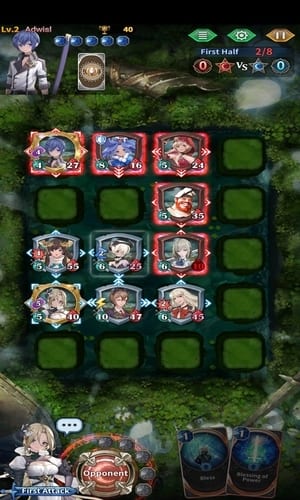 An Ensnaring Premise
An Ensnaring Premise
In Shadow Seven, you bring five pre-selected character cards to fight against five of your opponent’s. You move about on a grid, attacking your opponent’s cards. Drain a card’s HP and it’s removed from the game. The title’s unique hook is that one of each player’s five cards is their captain. Like the king in chess, your captain is your win condition—protect yours and destroy your enemy’s.
You take turns with your opponent like in many competitive card games. However, each turn consists of five moves. You either use these moves to reposition a card and attack, or to activate spell cards that you draw at the start of each turn. Unlike character cards, which are pre-selected and pre-positioned on the grid prior to searching for a match, spell cards are drawn individually, leaving their influence largely up to chance. Spell cards use moves as resources, ranging anywhere from one move to all five.
The card game mechanics offer a nice sense of excitement. Top draws can yield amazing returns, sometimes reversing disadvantageous situations. It’s a decent RNG mechanic so far as it doesn’t dominate the game. Typically, repositioning and attacking with cards is the best strategy.
Progression and where it Stops
From the onset, Shadow Seven encourages you to play against AI opponents. But at any time, you can break away and challenge other low-level players in the entry arena. The immediacy of the experience was surprising and welcomed. Battles are short without feeling rushed. This allows you enough time to think through your moves without taking so long that you bore your opponent.
Like any gacha game, Shadow Seven floods you with rewards when you begin, slowly removing them as you level up. This has the dual effect of luring you into the game’s gambling systems while likewise teaching you the mechanics of upgrading and itemization.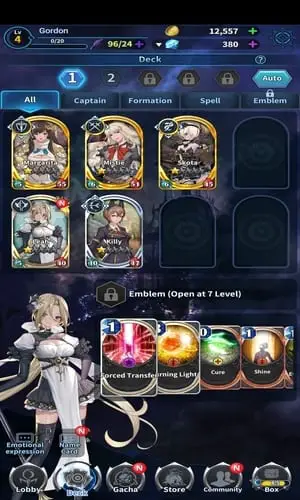
You can equip your character cards with weapons and armor—which both can be upgraded—to make them stronger in combat. While technically characters, they act primarily as units. The game even displays them as cards on the grid. For this reason, equipping them begins to feel forced. Attaining and upgrading equipment becomes a chore. Likewise, including this system makes the gameplay needlessly complex. This takes the focus away from strategy while also forcing the character to participate in more gacha mechanics to play the game.
Use as Needed
While I enjoyed Shadow Seven, it by no means provided an experience rivaling other competitive online games. Stomping other players in the arena will always be fun—to some extent—but what makes a competitive game successful is its ability to keep players around. Shadow Seven’s mechanics are fun to explore before becoming drowned out by the ancillary mechanics that have no business plaguing a card game. It’s free and therefore worth a try, but don’t expect something to hold your interest long term.
Hardcore?
Almost
Shadow Seven starts as a largely enjoyable game before it gets in its own way. Annoying mechanics force players to participate in too many activities that aren’t deck building and battling, eventually making the experience hard to enjoy.
